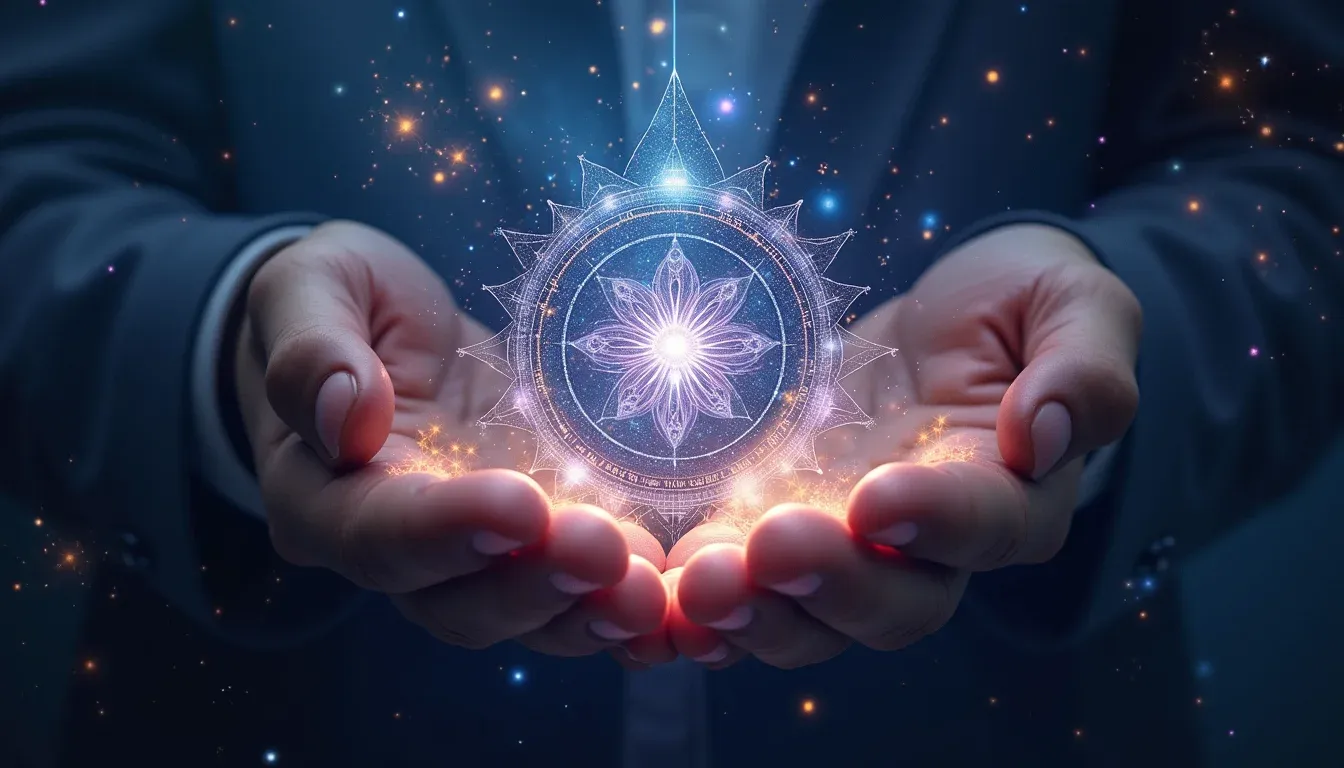Unveiling the Core Beliefs of Hinduism: A Path to Inner H...
Discover core beliefs of hinduism insights and guidance from expert astrologers.
In a world filled with diverse beliefs and practices, Hinduism stands out as one of the most profound and ancient religions, deeply rooted in a rich tapestry of culture, philosophy, and spirituality. With over a billion followers globally, its core beliefs resonate with many, offering not just a way of life but a spiritual framework that guides individuals toward enlightenment and harmony. Whether you are exploring Hinduism out of curiosity or seeking a deeper connection to its principles, understanding its core beliefs can be a transformative journey. In this comprehensive guide, we will delve into the fundamental tenets of Hinduism, illuminating their significance and how they can enrich your life.
The Cosmic Foundation: Understanding the Core Beliefs of Hinduism
At the heart of Hinduism lies a complex yet beautifully woven structure of beliefs that shape the lives of its practitioners. The primary concepts include Dharma (duty/righteousness), Karma (action and consequence), Samsara (the cycle of life, death, and rebirth), and Moksha (liberation). Each of these principles serves as a guide, encouraging individuals to live a life of purpose and virtue.
Dharma, often translated as "duty," extends beyond mere obligation; it encompasses moral law and ethical conduct. It varies according to one’s age, caste, gender, and occupation, thus encouraging a personalized approach to righteousness. By understanding your Dharma, you align your actions with your true purpose, fostering harmony within yourself and the universe.
Karma, another cornerstone of Hindu belief, teaches that every action has consequences. This law of cause and effect underscores the importance of making conscious choices. Positive actions lead to good karma, while negative actions yield adverse outcomes. Recognizing the power of your choices can empower you to create a fulfilling and meaningful life.
Samsara represents the continuous cycle of birth, death, and rebirth. This belief provides a broader perspective on life’s challenges, encouraging you to view them as opportunities for growth and learning. Each life experience is seen as a step towards spiritual evolution, guiding you closer to Moksha.
Moksha, the ultimate goal in Hinduism, signifies liberation from the cycle of Samsara. It represents the soul's reunion with the divine, achieving a state of eternal bliss and knowledge. Understanding Moksha can inspire you to seek a deeper spiritual connection, transcending material attachments and focusing on your true essence.
The Divine Manifestations: Understanding Brahman and Atman
Central to Hindu philosophy is the concept of Brahman and Atman, which illustrate the relationship between the ultimate reality and the individual soul. Brahman is the formless, infinite, and transcendent reality from which all existence arises. It is the universal spirit that permeates everything, emphasizing the interconnectedness of all beings.
Atman, on the other hand, refers to the individual soul or essence. According to Hindu belief, Atman is eternal, unchanging, and ultimately one with Brahman. This realization of oneness is what many seek through spiritual practices and self-inquiry. When you understand that your true self is a manifestation of Brahman, it can profoundly alter your perspective on life, encouraging compassion, love, and unity with all beings.
The Pathways to Liberation: The Yogas of Hinduism
Hinduism offers various paths—known as Yogas—tailored to different temperaments and lifestyles, allowing individuals to pursue Moksha in a way that aligns with their nature. The four principal paths are Karma Yoga (the path of selfless action), Bhakti Yoga (the path of devotion), Jnana Yoga (the path of knowledge), and Raja Yoga (the path of meditation).
Karma Yoga emphasizes actions performed without attachment to outcomes. By engaging in selfless service, you cultivate a sense of purpose while contributing positively to society. This path teaches that every action can be an offering to the divine, transforming mundane tasks into spiritual practices.
Bhakti Yoga invites you to cultivate a deep, personal devotion to a deity. This path fosters a loving relationship with the divine, often expressed through prayer, chanting, and rituals. Through devotion, you can experience a profound sense of belonging and connection to something greater than yourself.
Jnana Yoga focuses on intellectual inquiry and wisdom. It encourages self-exploration and understanding the nature of reality through study, reflection, and meditation. By seeking knowledge, you can discern the truth about your existence and the universe, leading to spiritual awakening.
Raja Yoga, often associated with the practice of meditation, provides techniques for controlling the mind and senses. This path nurtures inner peace and clarity, essential for realizing your true nature. Through disciplined practice, you can achieve a state of deep stillness and connection to the divine.
Personalized Guidance Awaits
Our expert astrologers can reveal remedies tailored specifically to your birth chart. Connect with us for a live consultation.
Get Deep Insights with our various ReportsThe Role of Rituals and Festivals in Hinduism
Rituals and festivals play a pivotal role in Hinduism, marking significant spiritual and cultural events. They serve as a means of expressing devotion, celebrating life, and reinforcing community bonds. Each festival is steeped in tradition, myth, and meaning, offering a unique opportunity to connect with the divine.
For instance, Diwali, the festival of lights, symbolizes the victory of light over darkness and good over evil. It is a time for reflection, gratitude, and renewal. By participating in such festivals, you not only honor your heritage but also immerse yourself in the vibrancy of spiritual energy that these occasions bring.
Rituals, such as Puja (worship), are integral to daily life in Hinduism. They provide a structured way to express devotion, focus the mind, and cultivate a connection with the divine. Engaging in rituals can enhance your spiritual practice, infusing your daily activities with purpose and mindfulness.
Understanding the significance of these rituals and festivals can deepen your appreciation for Hindu culture and its teachings, allowing you to participate fully in the spiritual richness of this ancient tradition.
The Importance of Scriptures: The Vedas and Upanishads
Hinduism is grounded in a vast body of sacred texts that provide insights into its beliefs and practices. The Vedas, considered the oldest scriptures, lay the foundation for Hindu philosophy, rituals, and ethics. Comprising four collections—Rigveda, Samaveda, Yajurveda, and Atharvaveda—they encompass hymns, prayers, and guidance for various aspects of life.
The Upanishads, a crucial part of the Vedic literature, delve into the philosophical aspects of Hinduism. They explore profound questions about existence, consciousness, and the nature of the self. Through meditative inquiry, the Upanishads guide you toward understanding your true nature and the universe's ultimate reality.
Engaging with these texts can provide a deeper understanding of Hinduism's core beliefs, enriching your spiritual journey. They offer timeless wisdom that remains relevant, encouraging you to ponder the mysteries of life and your place within it.
Explore Astrosight Services
- Learn more about the significance of Karma in daily life.
- Explore the diverse paths of Yoga and find the right one for you.
- Discover the spiritual meanings behind Hindu festivals.
In conclusion, the core beliefs of Hinduism present a profound understanding of life, purpose, and the universe. From the concepts of Dharma and Karma to the pathways of Yoga and the significance of rituals, each aspect offers a unique lens through which to view your existence. By embracing these principles, you can foster a deeper connection to your spiritual self and the world around you. As you embark on this journey, remember that personalized guidance can illuminate your path further. Connect with our expert astrologers for insights tailored to your unique journey. Your exploration of Hinduism can be as enriching as it is transformative, leading you to a life filled with meaning, purpose, and spiritual fulfillment.

Dr. Meenakshi Sharma
PhD in Vedic Astrology, 20+ Years Experience
18 + Years of Experience
100+ Readers
Dr. Meenakshi Sharma is a distinguished Vedic astrologer with a PhD in Vedic Astrology and over 20 years of professional experience in the ancient science of Jyotisha. Her extensive practice encompasses thousands of chart readings, predictive analyses, and remedial consultations, making her uniquely qualified to bridge traditional Vedic wisdom with contemporary applications. As a contributing writer for AstroSight, Dr. Sharma specializes in natal chart analysis, predictive astrology, and Vedic remedial measures, sharing her deep knowledge through insightful articles that make complex astrological concepts accessible to practitioners at all levels. Her approach combines rigorous academic training with ethical consultation standards, empowering clients through education and practical guidance while maintaining authentic adherence to classical Vedic principles.






